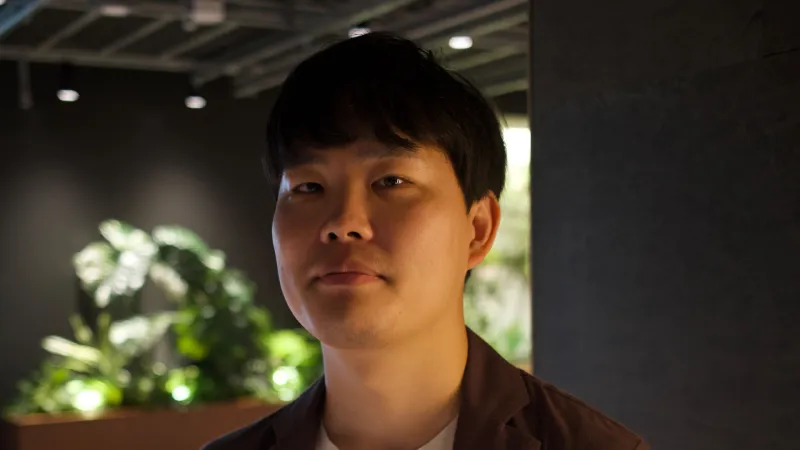
When Square Enix announced Dragon Quest VII Reimagined during a Nintendo Direct held in September, players were left with all kinds of questions regarding this remake. Game Informer has learned quite a lot about the game after visiting Square Enix’s Tokyo, Japan, offices last month for the latest magazine cover story, and we’ll be sharing details all month long.
Curiously, many Dragon Quest fans have questions about the game’s producer, Takeshi Ichikawa. He’s a relative newcomer, at least in a role capacity as large as producer, which means his job is to help get Reimagined across the finish line as a successful business product (rather than a work of art, which Ichikawa tells me is the job of the game’s director, Masato Yagi). On Moby Games, which is a database that tracks the credits of developers, Ichikawa has a special thanks credit on last year’s Dragon Quest III: HD-2D Remake, a staff credit on Dragon Quest Monsters: The Dark Prince and Dragon Quest Treasures, and assistant producer credits on Dragon Quest XI S: Echoes of an Elusive Age, and Dragon Quest Builders 2, which is seemingly the first game he ever received a credit in.
During my visit to Square Enix’s Shibuya offices, I interviewed Ichikawa (and various other team members working on Reimagined) for hours, and I learned a lot about him. Here’s what I learned:
Ichikawa’s Start In Game Development
“I’ve been playing video games all my life, ever since I was a student, and then ever since then, I have always had this dream of becoming a game developer and becoming involved with the game industry,” Ichikawa tells me. “So I wanted to be a game developer, a creator myself. I interviewed at a lot of video game publishers and developers, and in the end, I had the opportunity to work for Square Enix, and that’s how I started my career. And at the time, I was asked by my boss what kind of game I wanted to make, and I responded, ‘I’ll do anything,’ and that’s how they put me into the Dragon Quest team.”
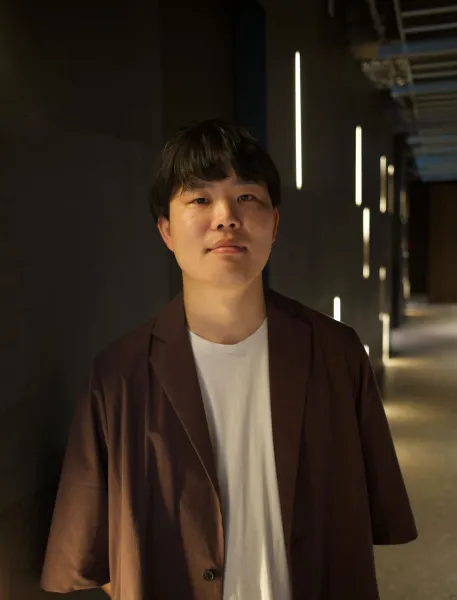
Dragon Quest VII Reimagined producer Takeshi Ichikawa
Though he eagerly said, “I’ll do anything,” Ichikawa tells me he had a goal of working on the Dragon Quest series because of his childhood fascination with it. “I was fascinated by the story focus,” he says. “As a kid, I actually really liked playing Dragon Quest Monsters: Terry’s Wonderland, so it is a great joy for me to be involved with the series.”
Ichikawa tells me he was born the same year Dragon Quest V: Hand of the Heavenly Bride launched in Japan, but he thinks his generation’s Dragon Quest is Dragon Quest VII: Warriors of Eden and Dragon Quest VIII: Journey of the Cursed King. “You know, the later installments in the series,” he adds. “I hadn’t had much chance to play the older ones, so after I joined the company, I started playing the older mainline titles.”
Remaking Dragon Quest VII
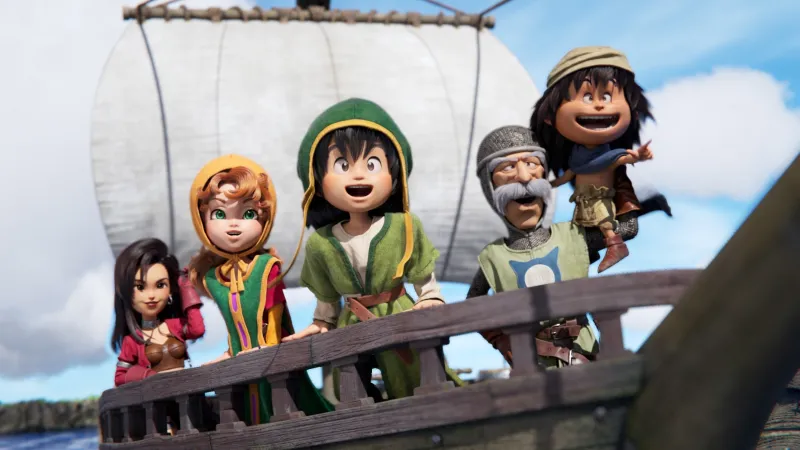
I ask Ichikawa if, given his history with Dragon Quest, it’s intimidating to remake a pretty beloved game in the series. He says there is certainly pressure.
“There certainly was that pressure, considering that Dragon Quest VII is actually the best-performing PlayStation title in history [Editor’s Note: I didn’t catch this mid-interview, but I presume he’s referring to Japanese sales numbers – not worldwide, as Dragon Quest VII is not the best-performing PlayStation title in history worldwide],” he tells me. “When I first started the project, there were certainly pressures of how much I can actually alter or change with this remake. But after I started talking with Horii-san, he was actually pretty open to a lot of ideas, and even some you could consider very ambitious [Editor’s Note: a new, never-before-seen conclusion is pretty ambitious, I’d say]. I did have a lot of fun working on this.”
I took this opportunity to ask Yuji Horii, the creator of Dragon Quest, who is seated beside Ichikawa during this duo interview, how he feels seeing Dragon Quest VII remade by a new generation of developers. He calls it an “interesting sight to see.”
“Way back then, when I originally created the original title, there were a lot of platform limitations at that time,” Horii says. “We were confined a lot […] so seeing this new generation of creators reimagining [I know Square Enix’s PR loved this nod] and remaking these titles, it’s an interesting sight to see; to see them create a modern remake for the current generation of titles.”
I follow up by asking Ichikawa what his initial discussions with Horii were like regarding the remake of Dragon Quest VII. He tells me their conversations focused on three components:
“I had three components I wanted to propose to him,” Ichikawa says. “The first one was the visuals of the game, so we proposed the handcrafted doll style of the game. We also wanted to suggest making some adjustments to the scenario, to the narrative of the game. And the third [component] being the adjustments made to battles and combat. For the scenario, Horii-san was welcoming to the changes, and he gave me the okay. For the battle, the only feedback he had was he just wanted us to make sure the combat wasn’t too convoluted – he wanted to make sure it was easy to digest and understandable to players.”
Why Ichikawa
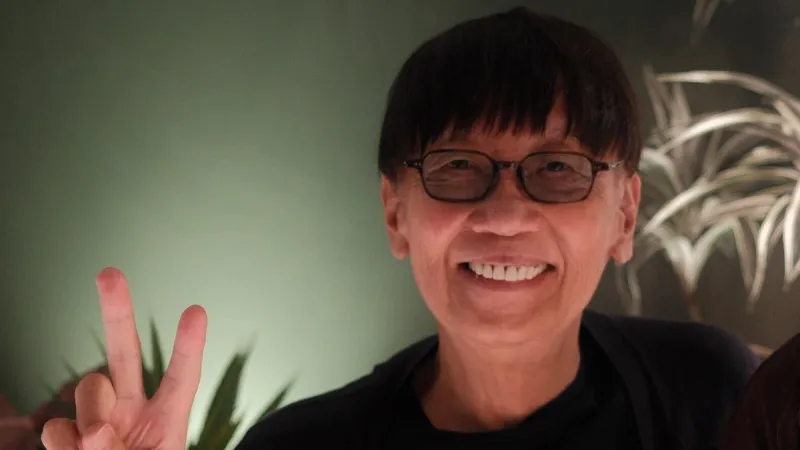
Dragon Quest creator Yuji Horii
I’m jumping ahead here, but at the end of my interview with Horii and Ichikawa, I ask the former about the latter’s work producing Reimagined.
“I’m incredibly, incredibly happy that these two [Editor’s Note: the other person being Reimagined director Masato Yagi] are working on the Reimagined title,” Horii says. “I like the doll aesthetics, the handcrafted style; I also like the diorama elements on the field. I was playing the game, and it was just really fun to even just walk around a field. So yeah, I’m really happy that these two are taking the helm.”
I ask Ichikawa how that makes him feel, recognizing that I’m probably embarrassing him with this question.
“I am super happy,” Ichikawa says with a beaming smile, an embarrassed laugh, and a reserved humility.
Ichikawa’s First Dragon Quest
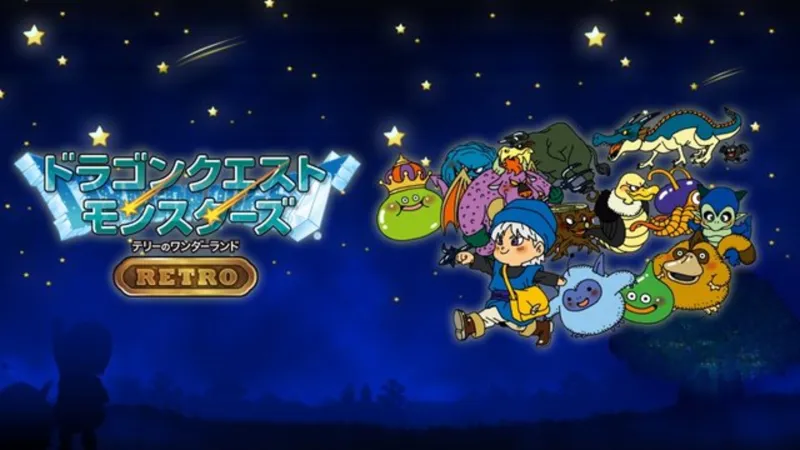
“Dragon Quest Monsters: Terry’s Wonderland was my first ever Dragon Quest title, and I was actually still in Kindergarten; it was actually before I even started in elementary school,” Ichikawa tells me. “So I didn’t really have a full understanding of what the story was about, but I do remember the battle system, like the monsters fighting each other was just so fun to me. And then one of the features of Terry’s Wonderland is that you can actually acquire monsters on the field to join your party. One of the very first monsters that I obtained or acquired was the [Garuda], and it’s actually my favorite monster to this day.”
From here, I ask Ichikawa about growing up in Japan and seeing Dragon Quest’s continued rise in the country (and worldwide).
“I’ve witnessed firsthand how Dragon Quest is such a huge cultural phenomenon, but I think one of the really strong points about Dragon Quest is the story, because even if a child plays it, I think the story can really resonate with them,” Ichikawa tells me. “Even playing as an adult, it’s still good, [and] seeing those stories as an adult really adds another layer of depth that you never got to feel when you were a kid. So I think the fact that it resonates with generations of players – not just kids, but also adults – I think that’s really one of the strong points of the series.”
Ichikawa’s Development History
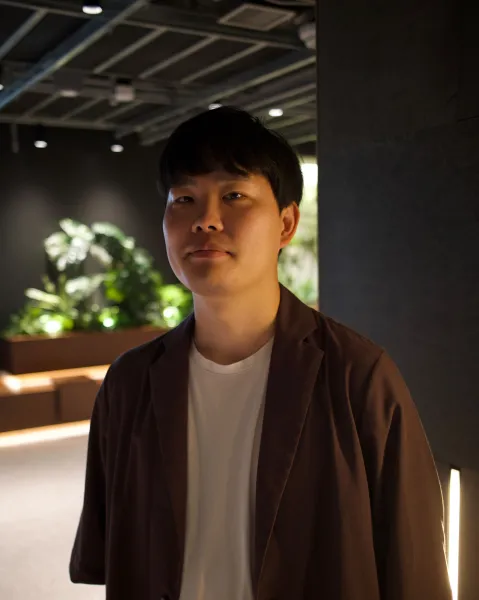
I note to Ichikawa that his history in game development only spans back to 2018, based on official findings available online; I ask if that’s the case.
“This is my seventh year in the game industry, and as mentioned in my earlier responses, the very first title I worked on was Dragon Quest Builders 2 [released in 2018],” he tells me. “And then I worked on Dragon Quest XI S, the multiplatform release of Dragon Quest XI. So for those two titles, I served as the assistant producer, whereas for Dragon Quest VII Reimagined, I’m working on the title as the producer of the game. When I was working as the assistant producer for Dragon Quest Builders 2 and Dragon Quest XI S, I had a really different perspecitve – I would focus more on the day-to-day operation as part of the development team, whereas being the producer of one game, not the assistant producer, means I have to oversee everything, including all of the development team as well.”
The Slime
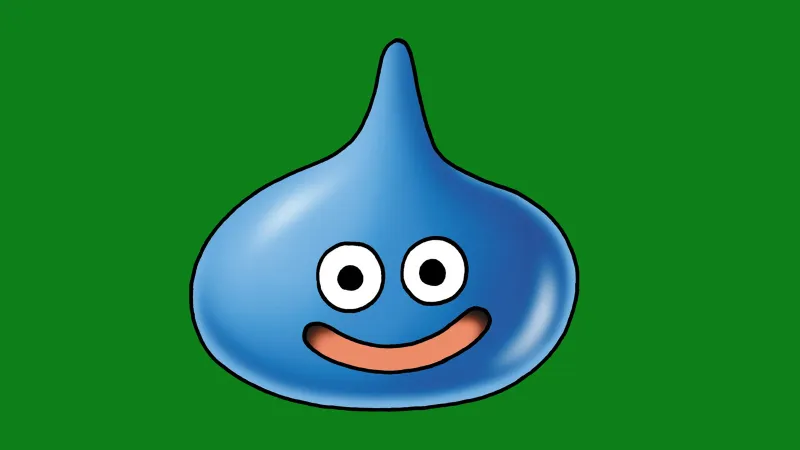
I couldn’t talk to people developing a Dragon Quest game without asking about the series’ most iconic monster, the slime. Here’s what Ichikawa has to say about it:
“Since I was young, at the time, the slime was already the iconic character that it is today, but one thing that I recall was that I saw a lot of slime merchandise in stores and such, and I [liked that] there were variations to the slime, too,” he says. “One thing I really recall thinking is that, ‘Oh, since it’s a gooey character, that means it has the versatility to adapt into a lot of different things,’ so that was one thing that impressed me with it.”
His Favorite Aspect of Dragon Quest
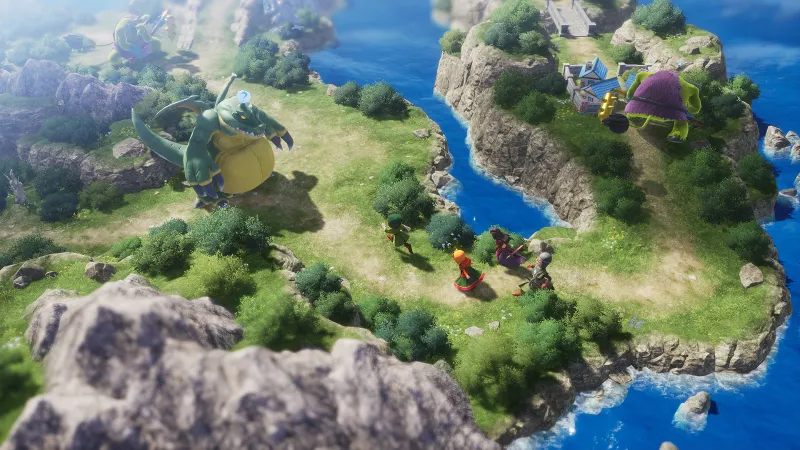
When I ask Ichikawa why he thinks the Dragon Quest series continues to be the cultural phenomenon it is today, he explains it’s the “Horii-esque” elements.
“I think all the RPG elements the series has to offer are the biggest strength of the Dragon Quest series, and I like to call it part of the Horii-esque elements,” he says. “All the humor, the jokes in the narrative, the dialogue, and the expressions and the portrayals; It’s just so adorable at times, and when you look at the story, it’s an epic story but also somehow feels relevant to you at the time.”
I hope this feature gives you some more clarity about who Ichikawa is and why he’s producing Dragon Quest VII Reimagined. If you read the cover story here, you’ll understand why I think Dragon Quest VII Reimagined is in good hands thanks to everyone involved in its development, including Ichikawa as its producer.
If you’re a subscriber, head to our Dragon Quest VII Reimagined issue hub for more details about the game, a huge Dragon Quest series retrospective as told by creator Yuji Horii, and all the other great features in Issue 373 of Game Informer.
